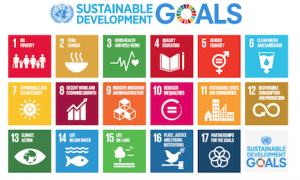Gender inequalities in Ghana make attainment of SDGs impossible – FAO

The persistent gender inequalities in the agriculture and rural sectors of Ghana if not consciously addressed will make the attainment of the Sustainable Development Goals (SDGs) an impossible task, a Food and Agriculture Organisation (FAO) report has said.
The major actors, Ministries of Food and Agriculture and Gender and Social Protection and the FAO made this known at a workshop jointly organised to validate the Country Gender Assessment report.
The report seeks to help countries address the gaps in formulation of country programme.
The workshop forms part of an effort to build on the collaboration between ECOWAS member countries and the Food and Agriculture Organization, which a Technical Cooperation Project has been developed on Gender Responsive National and Regional Agriculture Investment Plans for Meeting the Zero Hunger Challenge in ECOWAS Member state.
The report also says that the agriculture and rural sectors in Ghana contribute significantly towards the livelihoods of the population and to the country’s economic growth and development. The agricultural sector is the largest employer and provides jobs for the majority of men and women.
“When studies of this nature are conducted, they provide very useful information which helps with planning and review of agricultural programmes to support targeted interventions and this study brings on board dimensions to complement others which have earlier been done such as the Baseline Study for the Gender and Agricultural Development Strategy,” the Acting Director of the Women in Agriculture Directorate of the Ministry of Food and Agriculture, Ms. Paulina Suzanna Addy was cited as saying in the report.
“Agricultural productivity depends on the input from various actors along the value chain and these include women who play diverse roles,” she added.
It further said that women continue to bear the responsibility for the welfare of families, particularly the provision of health, education, food and nutrition to children.
There have been improvements in food security and nutrition over the years. However, the interventions implemented over time have not produced equal results across the country. There are still children and other vulnerable populations within some communities that face serious malnutrition and hunger due to food insecurity.
“Any transformation agenda in the agriculture sectors will not be able to achieve desired results if it continues to fail to address the gender gaps,” the FAO Representative to Ghana Dr Abebe Haile Gabriel was also cited as saying in the report.
Dr Abebe added that the evident gender-based disparities in terms of access to resources and services, in influencing decision making, and in taking up economic opportunities, need to be addressed through deliberate policies.
By Pamela Ofori-Boateng
Copyright © 2016 by Creative Imaginations Publicity
All rights reserved. This news item, or any portion thereof may not be reproduced or used in any manner whatsoever without the express written permission of the publisher except for the use of brief quotations in reviews.
